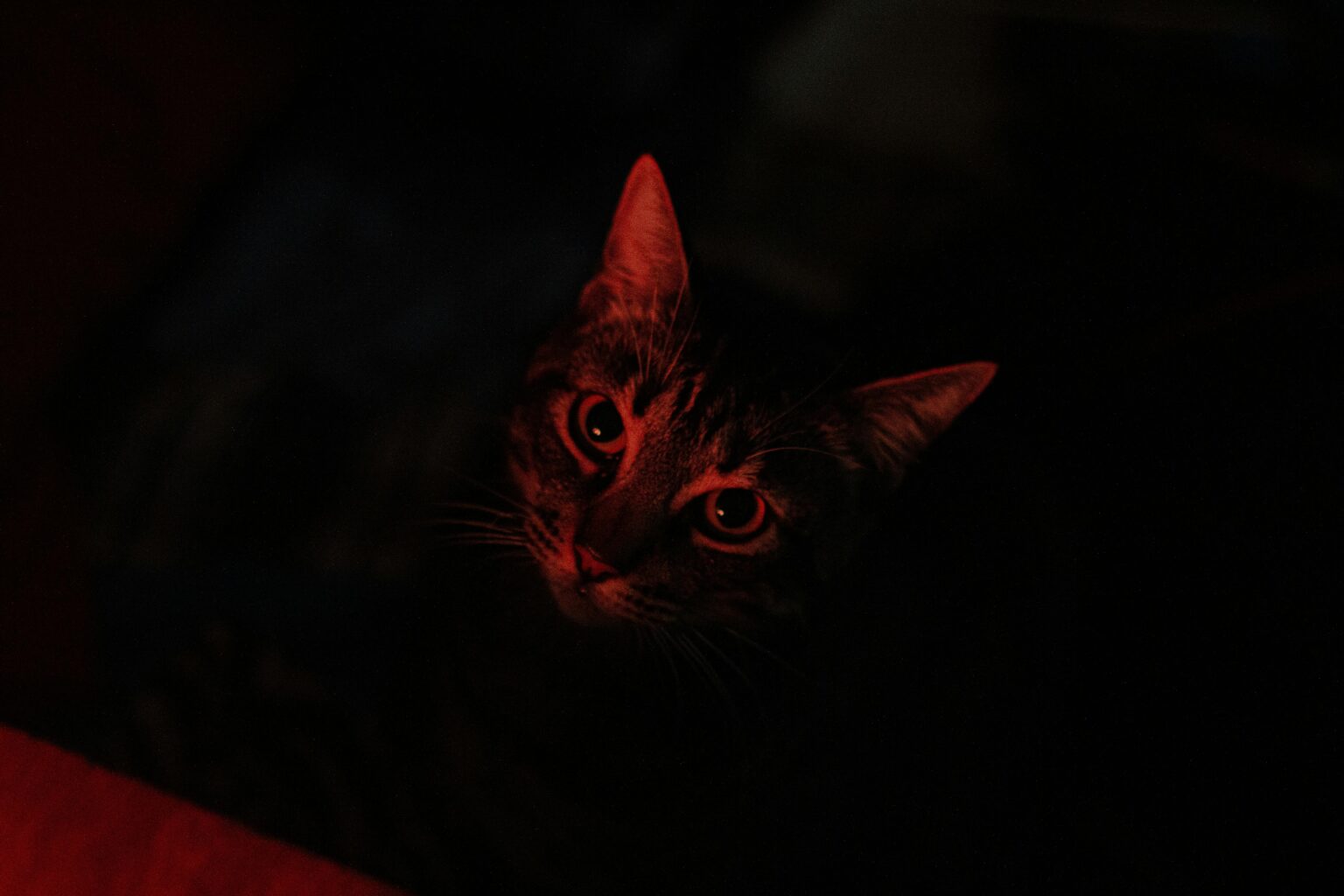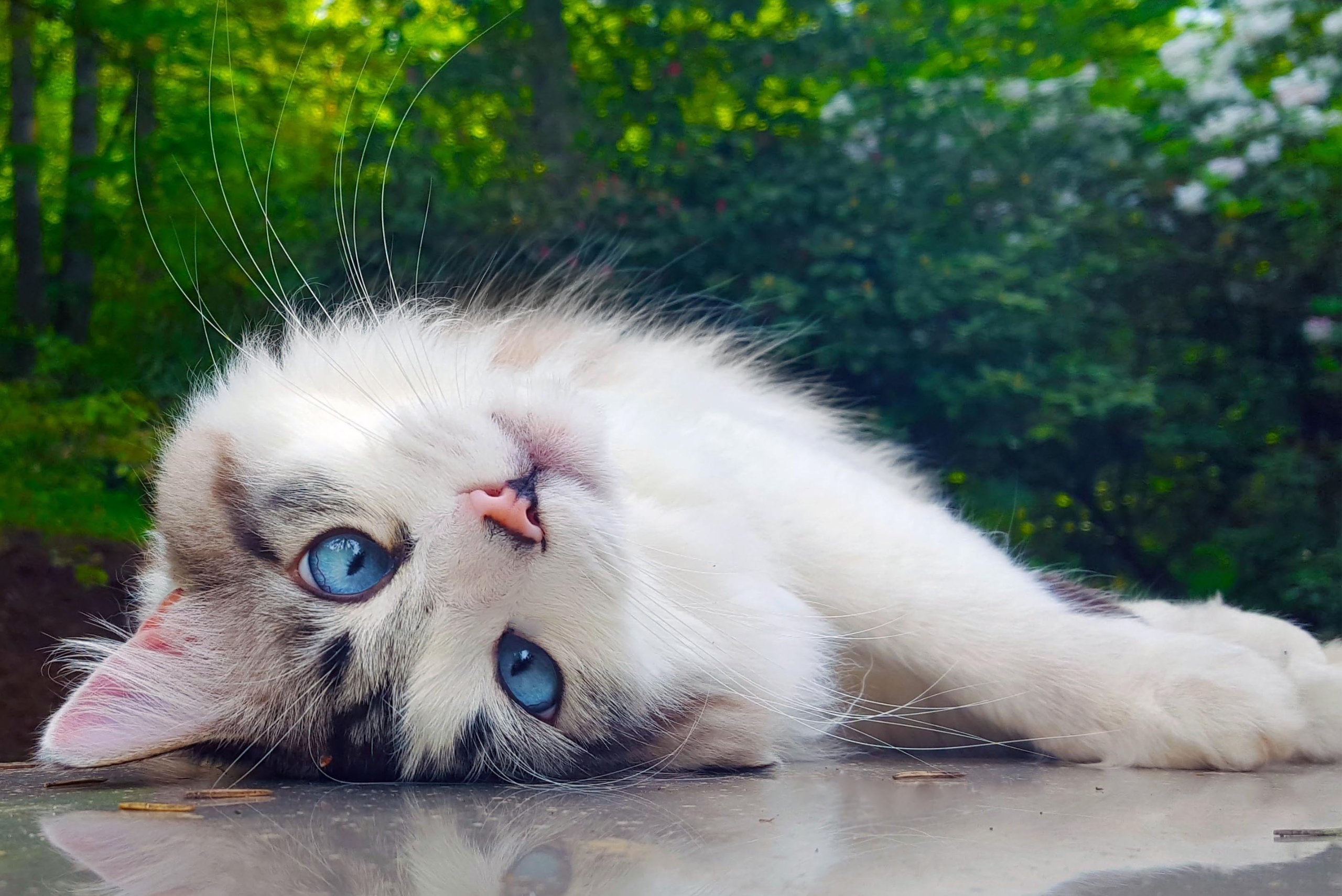Night meows decoded: what your cat is really saying
Wide awake at 3 a.m. while your little diva performs an aria in the hallway? You’re not the only one. Night meowing is your cat’s way of sending a message — and once you decode it, peaceful nights come back fast.
- Night meows decoded: what your cat is really saying
- Boredom or a call for attention
- Night-time anxiety or stress
- Physical or medical needs
- Natural feline instincts
- The hunter awakens at dusk and dawn
- Territory patrol and night watch
- A note from research
- Original night hack
- Conclusion: decode the meow, reclaim your sleep
- FAQ
Here are the most common reasons for those midnight concerts, plus gentle, effective fixes you can start tonight.
Boredom or a call for attention
A bored cat gets chatty
Cats sleep a lot by day, then suddenly remember at bedtime that life is fun. If your kitty hasn’t spent enough mental and physical energy, she’ll try to “invite” you to play… vocally.
- Plan a 10–15 minute play session before lights out (feather wand, chaser toys).
- Rotate toys weekly so they feel “new.”
- Offer a puzzle feeder for a slow, satisfying wind-down.
The power of a pre-bed routine
Cats adore predictability. A simple sequence — play, small snack, cuddle, then sleep — helps your feline switch to night mode.
- Serve a tiny supper after play to trigger the post-meal nap.
- Keep bedtime cues the same every evening.
Mistake to avoid
Avoid feeding or petting in response to meows at 3 a.m. It teaches your cat that meowing “works,” and the habit grows. Reward calm moments instead — even 10 quiet seconds count.
Want a deeper dive into night meows and routines that work? Explore our guide on why your cat meows at night and how to decode it.
Night-time anxiety or stress
Change feels big in the dark
Moves, renovations, a new baby, or a new pet can unsettle your cat. The quiet of night amplifies unfamiliar sounds and smells.
- Create a safe zone with a bed, scratcher, and a high perch.
- Use feline pheromone diffusers to soften transitions.
- Keep doors and blinds closed if outside activity sparks alertness.
Separation worries
Some cats get vocal when they feel “alone.” Your scent can help.
- Slip a worn T‑shirt under your cat’s blanket.
- Place the bed near your door to reduce distance without changing your rules.
Practical tip
Try a “comfort swap.” Tuck a pillowcase you slept on into your cat’s bed for two nights. Refresh weekly to keep that reassuring smell steady.
If you suspect stress is the driver, this checklist of common signs of feline stress and how to help will guide you.
Physical or medical needs
Hunger, thirst, or the wrong schedule
If dinner is too early, your cat may wake hungry. A small, protein-rich snack late evening can smooth the night.
- Split dinner into two parts: main meal and a tiny “last call” bite.
- Use a timed feeder to deliver that late snack without waking you.
- Fresh water in a wide, whisker-friendly bowl or fountain helps too.
Silent health issues
Arthritis, hyperthyroidism, high blood pressure, or cognitive changes in senior cats may cause night vocalization. Pain or confusion often shows after dark.
- Book a vet check if night meowing is new, louder, or paired with other changes (appetite, weight, litter habits).
- Ask about senior support: pain relief, joint supplements, or environmental tweaks.
Litter box access matters
A dirty, far, or covered box can prompt urgent meows. Night lighting helps, too.
- Keep at least one box on the main night route, scooped daily.
- Add a warm-toned nightlight near the box to make midnight trips stress-free.
Choosing the right substrate and setup makes a big difference. See our guide to choosing the best litter for your cat for easy wins.
Natural feline instincts
The hunter awakens at dusk and dawn
Surprising fact: cats aren’t truly nocturnal — they’re crepuscular, wired for activity at dawn and dusk. That’s why the “zoomies” often strike when you’re heading to bed.
- Offer two short “hunt” sessions: one at early evening, one just before bed.
- End each session with a small snack to mimic “catch and eat.”
Territory patrol and night watch
Street noises, neighborhood cats, or visiting foxes can trigger alert meows.
- Close curtains to block moving lights and outside critters.
- Provide high perches indoors so your cat feels in control of her “domain.”
A note from research
Domestic cats retain many wild-time habits, including dusk–dawn activity patterns. See the University of Lincoln’s overview of feline behavior and timing here.
Original night hack
Try the “two-stage wind-down.” Stage 1: 8–10 minutes of wand play. Stage 2: hide 3–4 kibble clusters or a small treat ball along a hallway. The quiet “foraging” lowers arousal and keeps minds busy while you slip into bed.
For more ways to read your cat’s voice and body cues, check our ultimate guide to understanding your cat’s meow.
Conclusion: decode the meow, reclaim your sleep
Night meows always mean something — boredom, stress, needs, or instinct. With a steady routine, smart play, and small environment tweaks, most cats settle beautifully.
Be consistent, reward the calm, and let your bedtime ritual do the talking. Your bond grows, and the house gets quiet again.
FAQ
Why does my senior cat meow more at night?
- Possible cognitive changes, pain, or high blood pressure.
- Keep lighting warm and low, add extra litter access, and schedule a vet check.
Should I ignore my cat’s night meows or respond?
- Ignore attention-seeking meows but only after ruling out medical issues.
- Reward quiet moments, not vocal ones, and keep a firm bedtime routine.
How do I stop a cat meowing at night for food?
- Use a timed feeder for a small late snack so you’re not the “dispenser.”
- Increase daytime play and offer a protein-rich mini supper post-play.
Do moves or home changes make cats meow at night?
- Yes — unfamiliar sounds and scents can spike anxiety.
- Create a safe zone, use pheromones, and keep curtains closed after dark.








